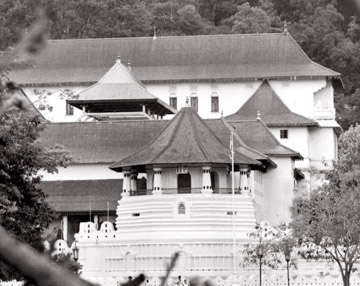|
The Morning Inspection
It is ok if you forgot what happened on January 25th
 Another January 25th is upon us. No big deal. Not the first, not the
last. Follows a January 24th and will be followed by a January 26th. In
a sense dates are meaningless things, relevant only in part and
irrelevant in the larger order of things. Another January 25th is upon us. No big deal. Not the first, not the
last. Follows a January 24th and will be followed by a January 26th. In
a sense dates are meaningless things, relevant only in part and
irrelevant in the larger order of things.
We are, however, frail creatures who do not always move on and beyond
moment, event and encounter. As such we assign values to dates, mark
calendars, celebrate, commemorate and mourn, depending on the strength
of our attachment to these things or even our revulsion.
There have been 13 January 25ths since 1998 and none of those days
are significant to me personally. On each of those January 25ths I
forgot that on a particular January 25th, that of 1998, the LTTE carried
out a cowardly and devastating attack on the place of religious
significance held most sacred by the Buddhists, the Dalada Maligawa.
Significant day
I would not have remembered that incident today had I not received an
email containing a fairly comprehensive account of the attack and its
implications, written by Daya Hewapathirana, reproduced in today’s Daily
News (that’s January 25, 2011). No other English newspaper found the day
significant, one observes. Perhaps we’ve all been immunized by the
terrible violence we’ve suffered as a people, as individuals and as a
nation for us to remember day, event and damage caused, even though the
Dalada Maligawa is not some piece of pavement that got damaged when some
drunk driver crashed into a lamppost.
 |
|
Sri Dalada
Maligawa. File photo |
Indeed, it is pertinent to reflect on what would have happened if say
a group dedicated to some self-understood ‘Islamic’ cause ran a vehicle
full of explosives into the Vatican on January 25, 1998. I am pretty
sure that 1-25 would have ensures that 9-11 died a quick death in the
collective memory of the world.
That’s beside the point as far as this article is concerned, however.
The point, as far as I am concerned, is about forgetting. Why is it
that we forget such monumental acts of terrorism? Do we suffer from
selective amnesia as a nation or do we have short memories as some
claim?
Is it because of the common perception that that which was destroyed
was later restored to previous glory with no sign of blemish (Daya
Hewapathirana’s article would be a rude awakening in this regard)?
Similar tragedies
There’s something in our society that makes us better able (than most
other societies) to take the blows and move on without being
over-fascinated with blow-moment. It is about coming to terms with
realities, not just those of the moment such as deed-done and
cannot-turn-back-clock, but the eternal verities, the ata lo dahama of
profit-loss, joy-sorrow, praise-blame etc and treating these with
equanimity. This is how we recovered from the bloody insurrections of
1971 and 1988-89 and the tsunami of 2004 with a speed few nations
suffering similar tragedies have emulated.
Putting aside the requirement of remembering in terms of learning
lessons, watching out for patterns and re-enactment with view to
prevent, such ‘forgetting’ does have an important and healthy social
function which moreover could very well be one of the defining
characteristics of our culture. It can be sourced to the overwhelming
significance and contribution of Buddhism to who we are today, but the
quality is not over-represented among Buddhists. It cuts across all
identities. We cheer our cricketing heroes when they do well but when
they fail we don’t burn their houses to use an example that is
relatively current given the World Cup is around the corner.
Teachings of the Buddha
The attack on the Maligawa in fact affirmed the fundamental teachings
of the Buddha, in particular that of impermanence. We live in a country
where misguided individuals desecrate the temple of Jesus Christ and
operate in accordance with a de-contextualized reading of the Book of
Deuteronomy or on account of having internalized the unholy Papal Bulls
that sanctioned and justified the massacre of Buddhists in their
thousands. When they ask recent ‘converts’ or those to whom they want to
prove a point to smash images of the Buddha, they do not seem to
understand that they are in fact affirming this same principle. Those
who react by attaching such individuals or their so-called churches are
not being ‘Buddhists’ in terms of the dhamma but ironically operate in
much the same way as their detractors (so imagined). The better response
is to delve deeper into the dhamma, to meditate on impermanence and move
on.
Principle of impermanence
The destruction of the Bamiyan Buddha statues, similarly, affirmed
the principle of impermanence. There was horror, yes. Buddhists in this
country did not turn that horror into anger and hatred. It didn’t spill
over into Buddhist-Islamic conflict as such incidents do in the case of
certain Hindu groups in India.
I did not remember the significance of January 25th. Maybe I should
have. Maybe we all should have. If only to remind ourselves that it
could happen again and that therefore we need to be vigilant. On the
other hand, perhaps that forgetting speaks of a certain civilizational
maturity. Or a civilizational identifier.
A positive that rises above the negative overtones of the word
‘forgetting’. It’s all good, I think.
[email protected]
|



